Cochise Country
Wheeling and Hiking in Arizona's Apache Stronghold
Article Date: March, 2015
Article and Photography by Mark Quasius
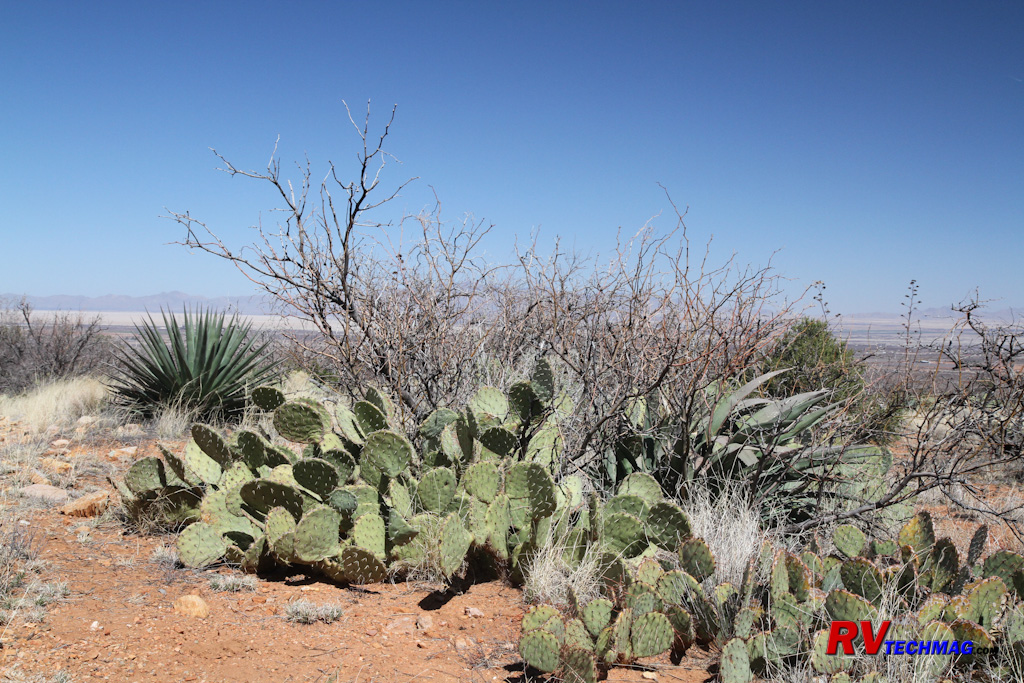
Fort Bowie
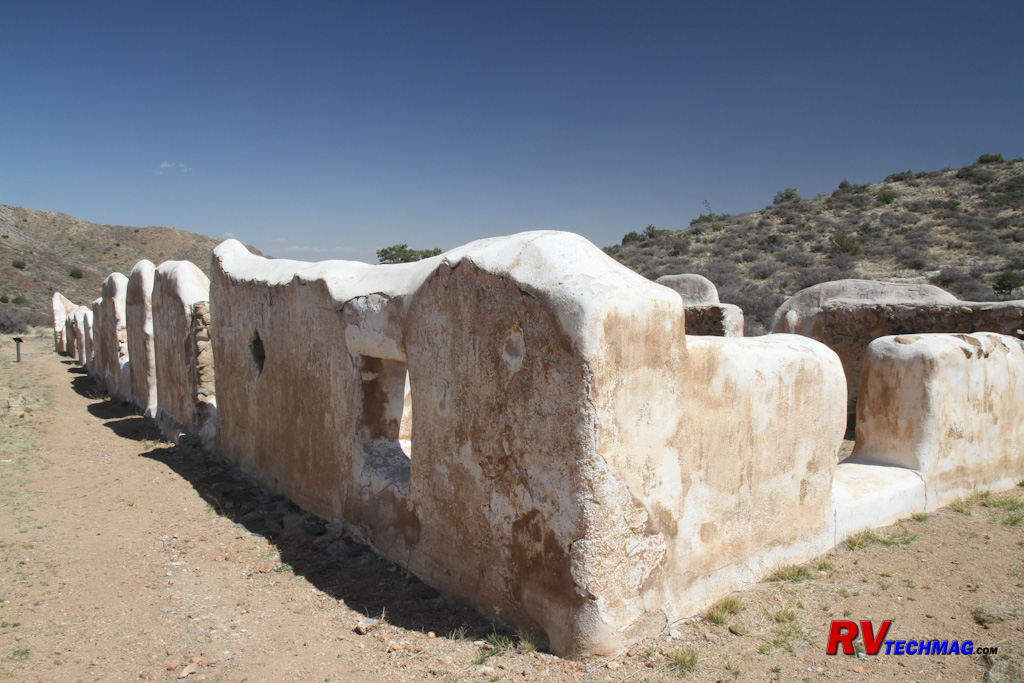
These adobe ruins are typical to Fort Bowie. The upper half was timber, which was stripped by local ranchers after the fort was abandoned. This
particular section was where Geronimo was kept after his capture.
Fort Bowie was originally established in 1862 as a result of a series of engagements between the US Army and the Chiricahua
Apaches and was situated to protect the important source of water at Apache Pass. The original temporary fort was small and was replaced in 1868 by
a larger more permanent fort on a plateau 300 yards to the south. While relations between the white settlers and Chiricahua Apaches were originally
quite good, that changed in 1861 when another band of Apaches raided the ranch of John Ward and made off with captives. The army intervened and
mistakenly blamed Cochise and the Chiricahuas for the raid and demanded that Cochise return the captives. Lieutenant George Bascom and a detachment
of 54 men went to Apache Pass to confront Cochise and demand the return of the captives. Cochise denied making the raid and even offered to help find
the hostages but Bascom decided to hold Cochise and some relatives captive instead. Cochise escaped and some of his family members were killed. This
set the stage for the future conflicts between the US Army and the Apaches for years to come, culminating in the capture of Geronimo in 1886. Geronimo
and his followers were held at Fort Bowie for a while until their eventual banishment to Florida.
|
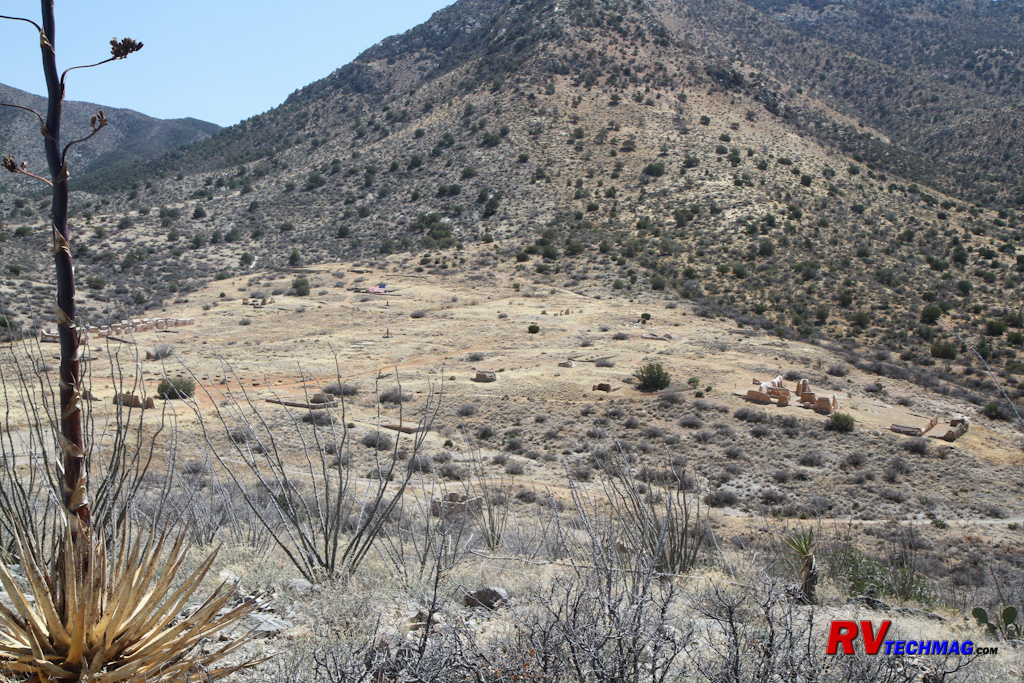
Fort Bowie was the headquarters for the U.S. Cavalry in the area and was established to protect the ranchers and the
travelers on the
Butterfield Stage routes. It can be reached by a one-hour hike from the parking area.
|
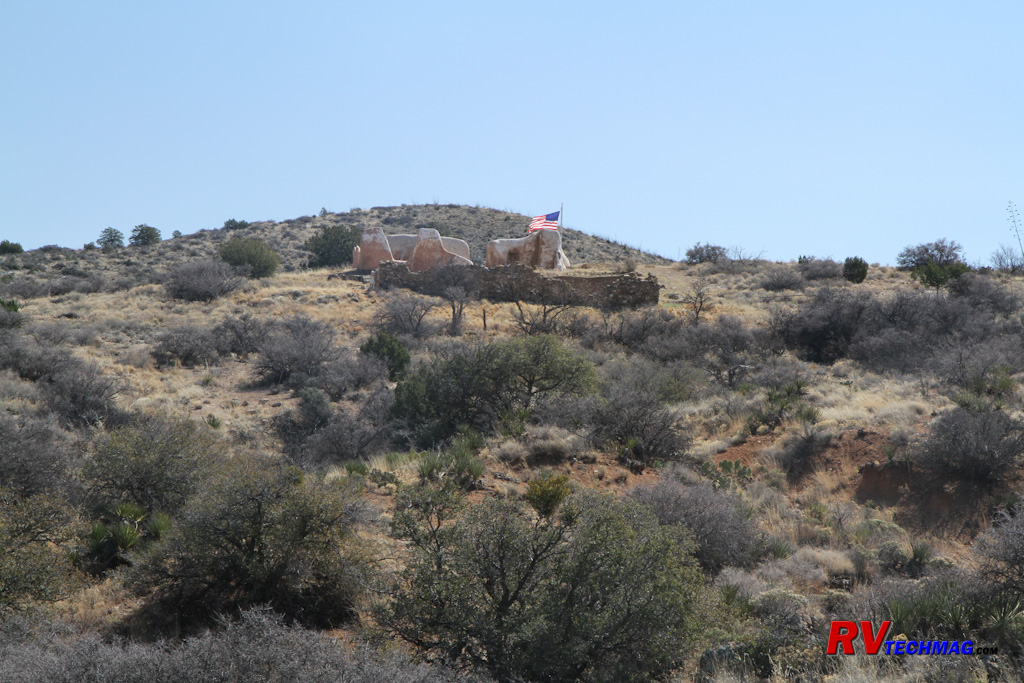
The first Fort Bowie was located high up on a hill and was deemed too small. The fort was then relocated to a larger area in the
valley below.
|
The fort's buildings were constructed with adobe exterior walls with wooden porches, roofs and interior walls. The thick adobe
walls kept the buildings cool during the hot summer days and warm at night. When the fort was abandoned in 1894 local ranchers pilfered the wood for
use in their own structures. What remains today is an extensive collection of adobe walls that mark where the various buildings were. Fort Bowie was
declared a National Historical Landmark in 1960. A visitor's center and museum serve as the park's headquarters.
|
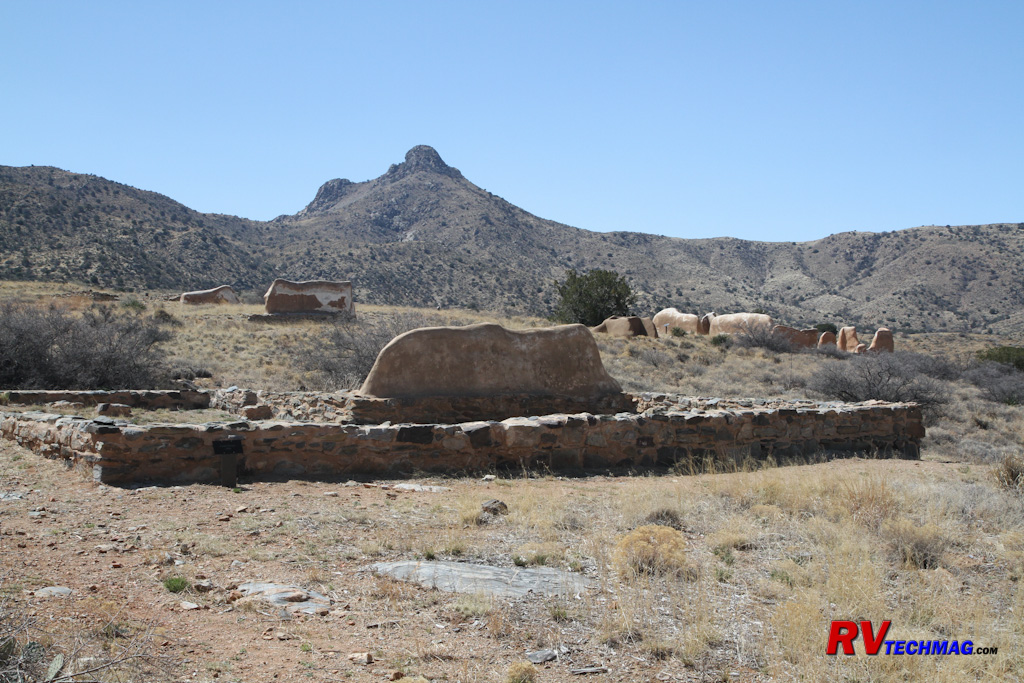
Fort Bowie contains a large number of adobe ruins from the various buildings within the fort.
|
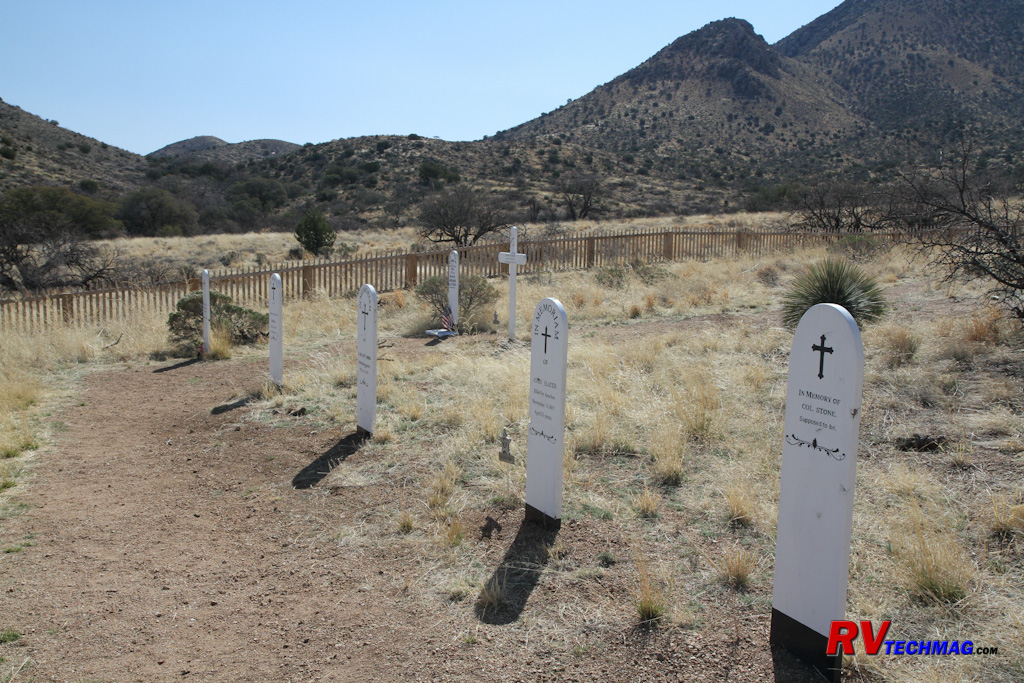
The cemetery at Fort Bowie contains grave markers for soldiers and civilians who died there, including one medal of honor recipient. The
remains have been re-interred elsewhere, but markers have been placed in their original location and the fence was constructed to the
exact dimensions and details of the original cemetery.
|
Access to Fort Bowie is gained by passenger car and a short 1.5 mile hike. From
Wilcox, AZ take highway 186 south for 20 miles
to the Fort Bowie turnoff. Head east on the gravel road another 8 miles to the parking area. The trail passes numerous interesting features along the
way to Fort Bowie. The remains of an old Butterfield Stage station, Apache Spring, Siphon Canyon, Bascom's Camp and the Fort cemetery are all located
along the trail. Be sure to bring plenty of water on the hike although you can refill your water containers at the visitor center. Toilets are located
at the parking area and at the visitor center.
Return to Home Page
If you enjoyed this article be sure to recommend RVtechMag.com to your friends, like us on Facebook or Twitter
or subscribe to our RSS feed.



|










